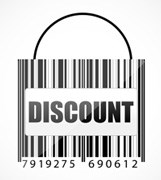
Related
Top stories






More news


Marketing & Media
Ads are coming to AI. Does that really have to be such a bad thing?














Consumers are now demanding value for money and business owners would now need to differentiate themselves in order to remain sustainable. David Lewis, CEO of Retail Capital - an alternative funding provider - believes that, under such circumstances, business owners have to adapt - and fast. "Business owners are either going to be definitive winners or losers in the battle for shrinking customer spend," he comments.
He is not alone in believing that it will become crucial for restaurant owners to differentiate themselves in order to remain a sustainable and growing business, as these economic changes have resulted in a change to 'typical' consumer spending behaviour.
Due to the sacrifices made in many areas of their household budgets, consumers are going to be demanding value for money more than ever and restaurant owners will need to innovate in order to deliver this to their customers.
Value means different things to different consumers, in much the same way as value can be offered in different ways across different businesses. Kevin Hedderwick, CEO of Famous Brands highlights "Value is the new black - the competitive trading environment and general economic downturn has trained consumers to look for value - which they perceive as price, quality, relevance and convenience."
For some it could mean rewarding loyalty. Customer loyalty gives your business the competitive advantage to endure a tough economy, stay afloat and continue trading. Loyal customers do not necessarily prioritise the cheapest price - but they do demand real value, which comes with the experience that you provide and the benefits that they perceive your business gives them in combination with price.
Certain brands are doing this well - and their growth is testament that offering customers increased value and innovation (coupled with effective implementation) really pays off.
For example, introducing a loyalty card that encourages the family to dine out for less can be a means of increasing customer volume and brand loyalty simultaneously. Offering entertainment facilities for children means the whole family can dine out together, allowing the parents to have a "date night" and the kids to be occupied, with the added benefit of no need to pay for a babysitter.
Spur Steak Ranches' family card loyalty programme has been particularly successful, attracting over 1.4 million cardholders who spend on average 20% more than non-members do. In addition, special offers, like the "unreal breakfast deal" are a perfect example that providing something that offers a higher perceived value for money will always result in a higher proportion of consumer spending.
Value for money does not have to mean cheap. A cheaper alternative is often associated with things like a Chinese import, the "No name" brand, the "no frills" airline or a retail chain that is positioned lower than the premium brand.
Woolworth's innovative twist on traditional offers is an excellent example of where value can be a premium product that effectively meets consumers' needs at an acceptable price. It cleverly changed the benchmark comparison from other retail competitors to eat-out restaurants in its "4 Eat in under R150" campaign where it highlighted the cost of a 3-course menu for four people using its products. This clearly positions Woolworths as a cheaper alternative to "eating out" and allows it to retain the positioning of a premium retailer, whilst offering value for money.
Value initiatives like this and other product bundling promotions (3 for 2), special offers and discount savings for store cardholders have generated a 15.4% increase in food sales for Woolworths this year alone.
Economists and analysts are united in agreement that there are further tough times ahead for South African consumers and it will be the businesses that invest to act smarter that will survive and prosper, whilst others will struggle and fail. These examples highlight that innovative, value-for-money strategies work.
However, implementing such strategies requires investment and effective marketing, but the tough economic climate makes it even more difficult than ever for business owners to access bank funding. Restaurant owners are starting to look elsewhere, for more appropriate funding avenues that offer solutions tailored to their specific business needs.
Retail Capital successfully introduced the business cash advance product to the country a few years ago and to date has advanced over R200 million to restaurants that include Spur, Panarottis, Wimpy, Ocean Basket and Nando's.
Lewis attributes the success of the business cash advance product in South Africa to the fast turnaround. "It is quick, simple and accessible. We are able to provide restaurant owners with funding when they need it most, without making them jump through the hoops that red tape that traditional funding providers require. What I find most compelling is the number of repeat customers we have which tells us that the product is well suited to their needs in the current economic climate."
For more information, go to www.retailcapital.co.za.